Cat Behaviors That Are Paw-sitively Perplexing & Curiously Odd
Cats, like us, have distinctive qualities and traits. “Normal” cat behavior isn’t really a thing. You can assume that some behaviors will be found in many or even most cats, but each cat is still unique. Like us, their moods and environment affect their habits and behaviors. Our cats are attempting to teach us an important lesson by acting on their nature. This isn’t to say that they can’t learn to behave in ways that benefit the entire household. There is hope if your cat has excessive grooming habits, destructive kneading or scratching habits, or is a nightly disruptor. Early intervention with veterinary guidance or behavior training with a cat behavioral specialist can help turn cat behavior difficulties and challenges around.
If they bound around the house
You’re finally home after a long day’s work and you can’t wait to shower and hit the sack. Suddenly, mid-sleep, you start to hear strange noises and your cat will charge into the room like a pack of dogs is after it.
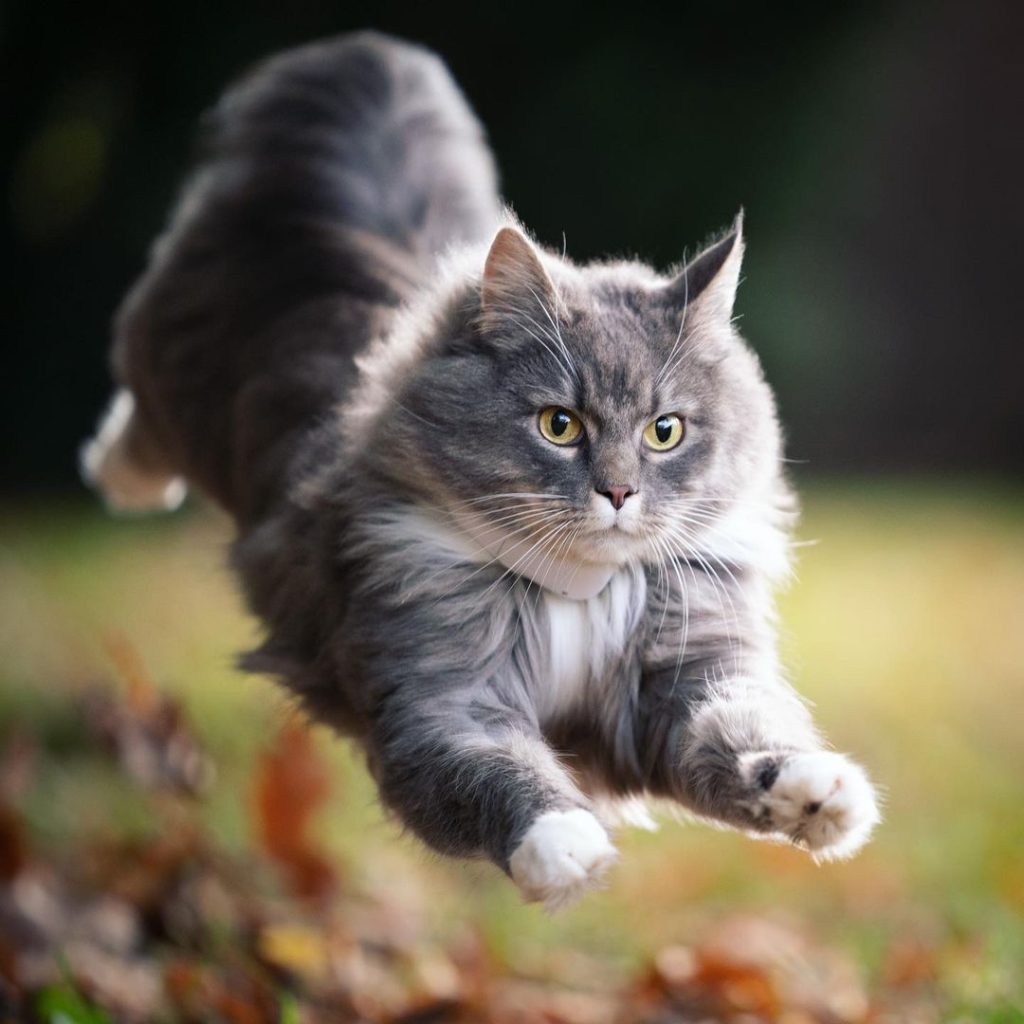
Cats are furry balls of energy and they need to let it out since hunting isn’t an option. House cats zoom about the house because they don’t have enough space for them to be free. If your cat does this, play more with them to release all that energy.
Face sniffing
Cat owners can relate to the feeling when their cat suddenly buries its face in theirs. It can catch you unawares but if you are used to it, there is comfort in that squishy face rubbing against yours. What bliss is this?
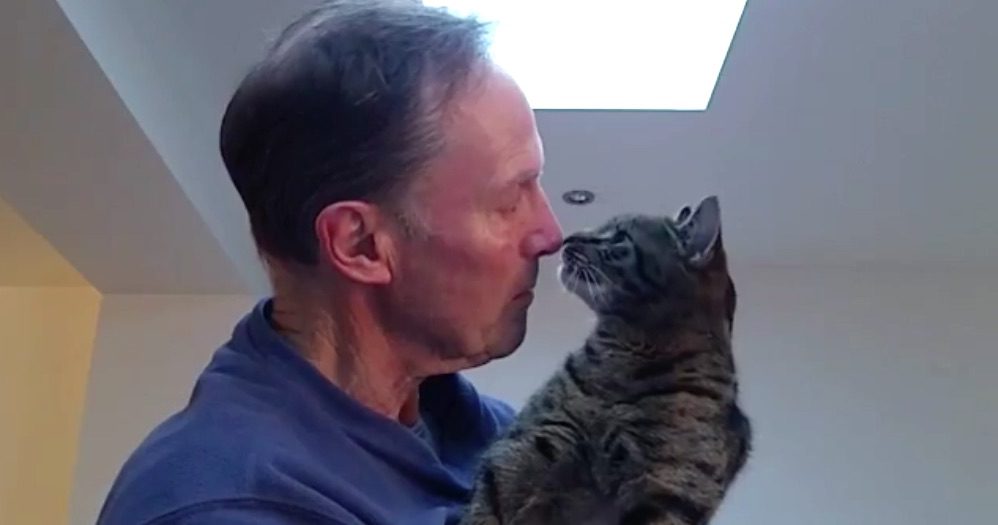
Your face is an excellent spot for your cat to smell your unique natural scent, which is them searching for your essence, so to speak. It helps them relax by reassuring them that you are, in fact, you, and not some stranger they’ve never met in their life.
Chirping
It’s a lovely summer evening, with bird calls in the air. But, as soon as your darling tabby sees the birds outside the window, it starts chattering its teeth in a way that sounds like a small toy motor is malfunctioning.
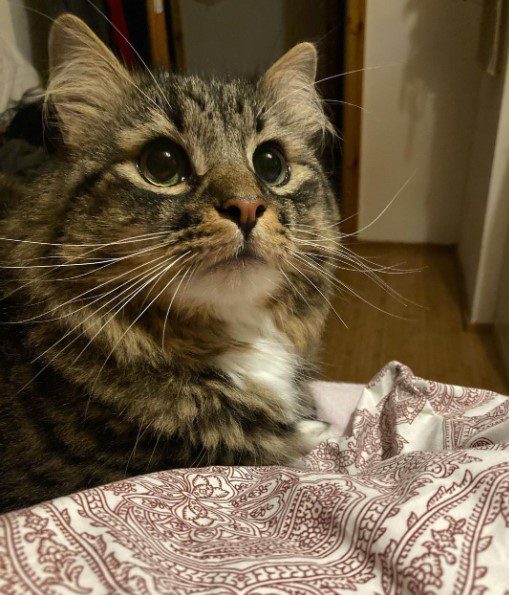
Certain experts have a theory that this is a sound of irritation since they can’t catch the bird through the window, no matter the effort. Some say it’s a natural reflex where cats warm up their muscles before chasing their prey.
Lounging on your stuff like it’s theirs
Nearly every cat owner currently in this world and those who were in this world can vouch for the fact that cats have interrupted them during work. Whatever you may be doing, may it be reading, working on something important, cats don’t seem to care.
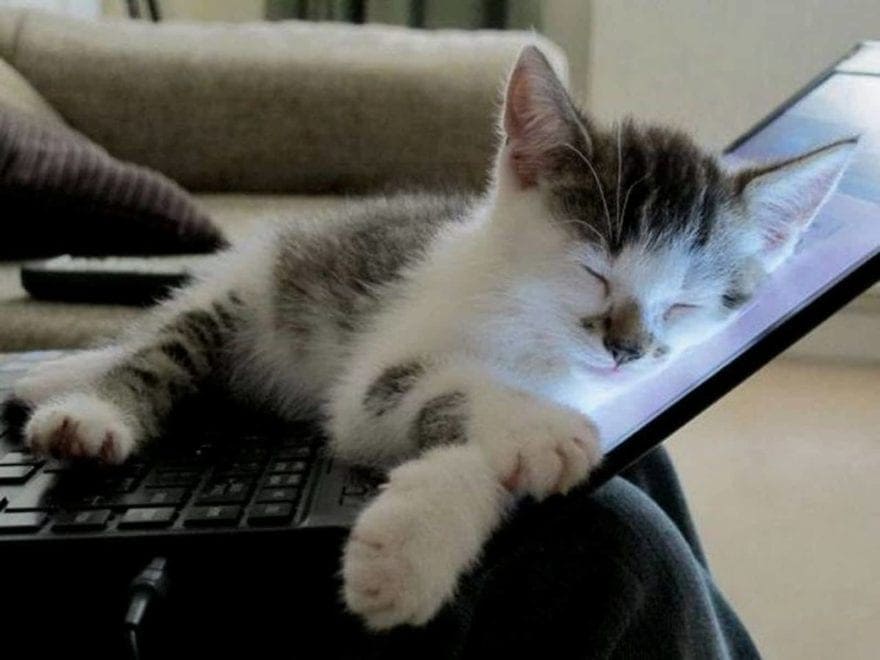
Cats do this because they notice you reading or working on your computer and seek attention, so they get in the way of you and the object receiving what they want. They may even spread their scent on your belongings to identify their territory. A simple cuddle is a solution for this.
Boxes
It doesn’t matter if you buy them the best cat bed money can buy. They won’t stay in it. There might be nice areas in the house, you’re sure to discover your cat snuggled up in a box, basin, or any other cramped spot.
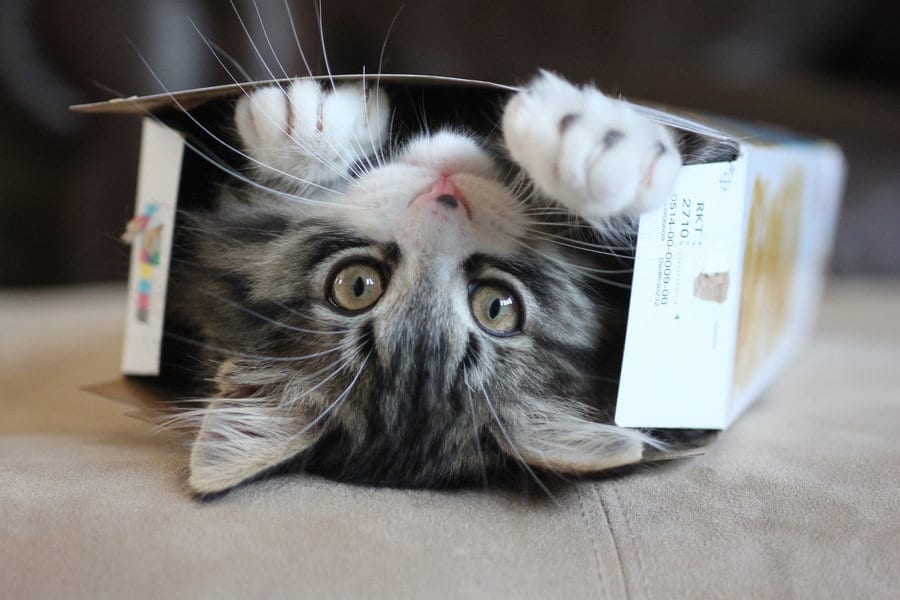
They do it to get a sense of security. Small wild cats will seek cover in caves or holes if they feel threatened in an open area. They’re not in any danger in your home, but they feel safer when they’re crammed into a small space.
No they don’t take you for bread dough
It most certainly isn’t because they worked in a pizzeria in a past life. A newborn kitten’s initial impulse is to press on its mother’s teats while consuming her milk in order to stimulate her body to create more milk.
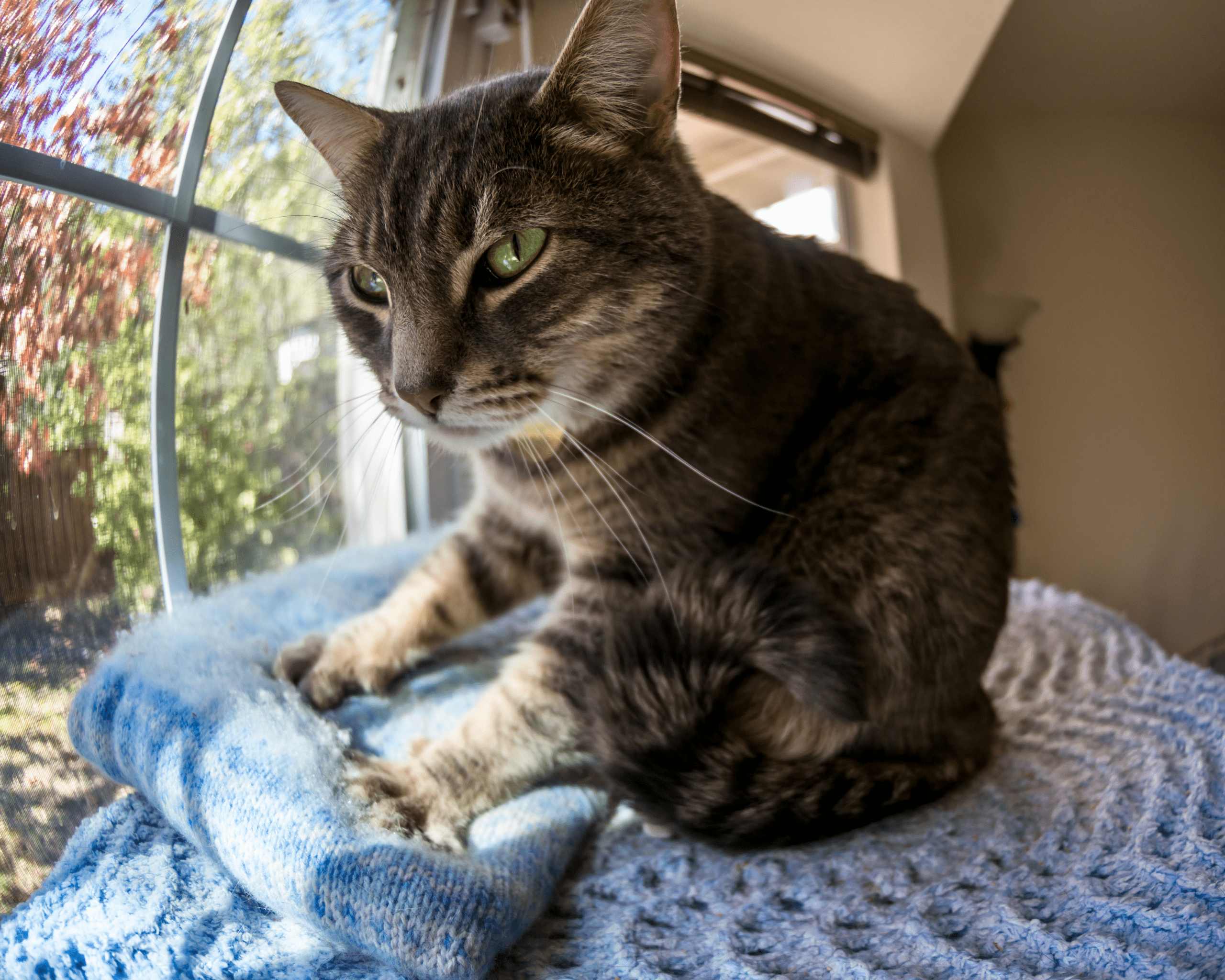
Even as adults, they retain this kneading motion. Adult cats do this when they identify the comforts of their mother with a soft surface (or your body). There are theories which state that cats do this to express happiness and contentment or to ease tension.
They see me rollin’
There’s something about a fluffy cat that just rolls around the house. They roll around on the ground on their backs for a variety of reasons, but they only do so when they are fully relaxed, as baring their belly is exposing it to threats.
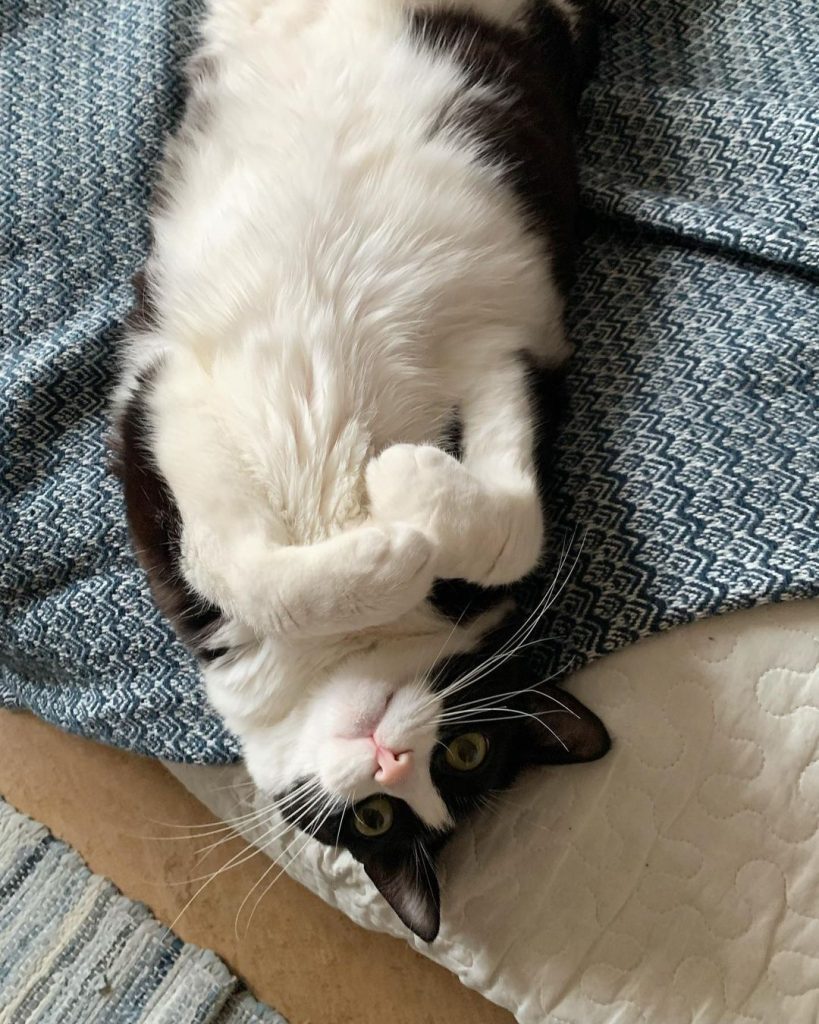
They could just be scratching their backs and stretching their muscles, or they could be trying to involve you in a game. Rolling is also a technique for them to mark their territory, as their scent is left on the surface area they roll around.
Silent treatment
When compared to typical dogs, most cats have a sense of pride and self-importance that is characteristic of their nature. They recognize their name and the voice of their owner, but unlike dogs, they do not respond immediately when called.
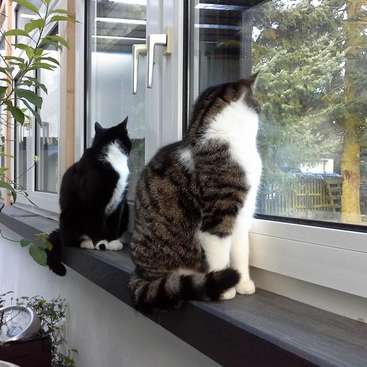
Cats prefer to show affection when they want, rather than when you want. If they are not seeking attention by the time, and you call them, they won’t answer. Nothing to worry about as your cat will approach you when it’s playtime.
When they get flashbacks into the past in the night
As cat owners, we love our charges. We love showering them with affection. But when they try their hand at opera singing in the middle of the night, just after you fell asleep, it really makes you reconsider your life choices.
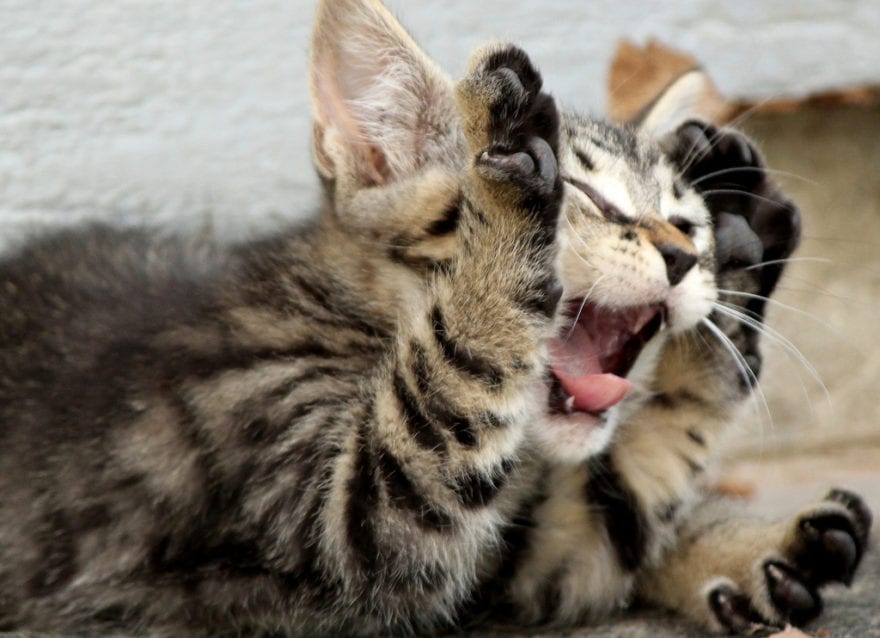
These sounds could be a result of the cat attempting to hunt, or they could be cries of unhappiness if no prey can be located. If you can play with your cat while you are awake, it will be tired when you go to sleep.
Let sleeping cats lie
Turns out, there’s a reason why your kitten wants to have forty winks, irrespective of the time of the day. It’s because, during sleep, their bodies release the growth hormones needed for their development. That’s why kittens sleep more than adults.

Cats usually sleep a lot because they need to save their energy for the next hunt or activity. Like us, they also fall asleep when they’re bored and there’s nothing to do. So, if you want to engage it, play with it.
Teething
Pica is a condition in which cats chew on non-food items such as plastic and other non-food items. Without resorting to restricting its freedom, you should take your cat to the veterinarian if it is gnawing on non-food objects frequently.
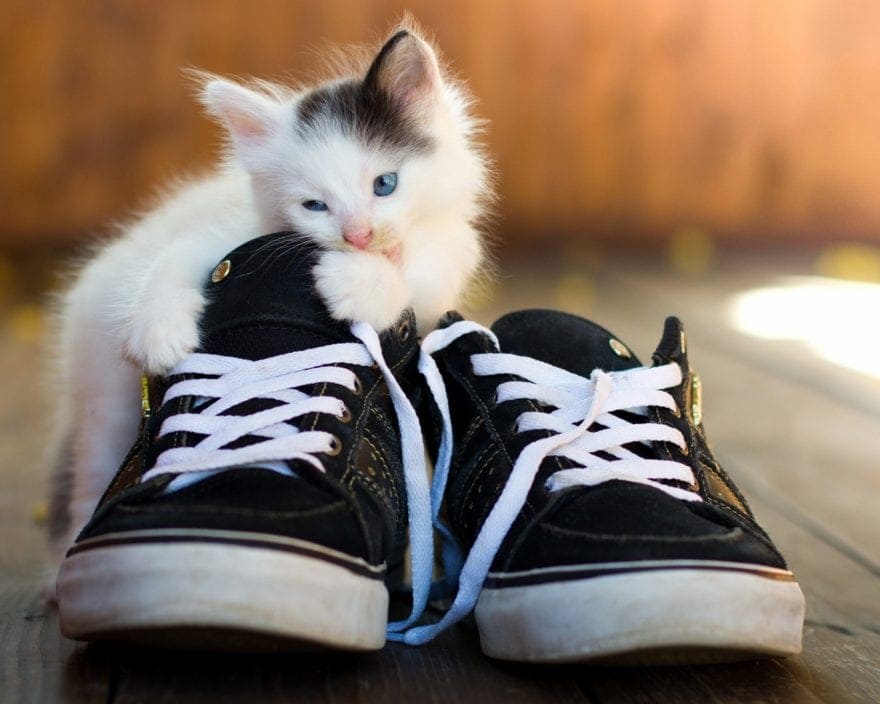
While researchers aren’t sure what causes pica, they believe it could be due to caloric issues or stress and worry. Cats chew on things that aren’t food to relieve stress. In the long run, your cat’s digestive system can be harmed by this.
Bumming you out
There you are at home, on your sofa. You try to cuddle your cat but it keeps on escaping your loving grasp and keep presenting you with its fluffy bum. What you have done this time to deserve this… gesture from your cat?.
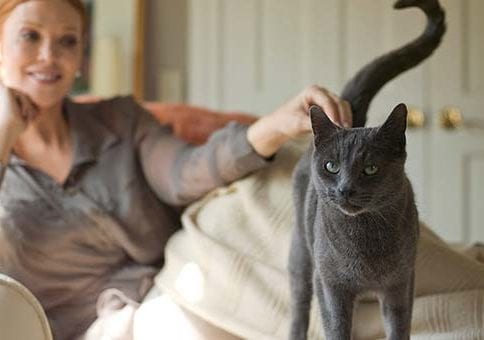
Lifting their tails and shoving their rump in your face may appear rude, but it’s actually a sign of faith and devotion. They show that they are friendly and willing to interact with you by lifting their tails. In a way, it’s a compliment!
Loo Patrol
You come home after a pretty eventful Friday night at the pub with your crew. We all know what beer can do to a person so you get up to go to the loo and your tabby also follows you like your bodyguard.
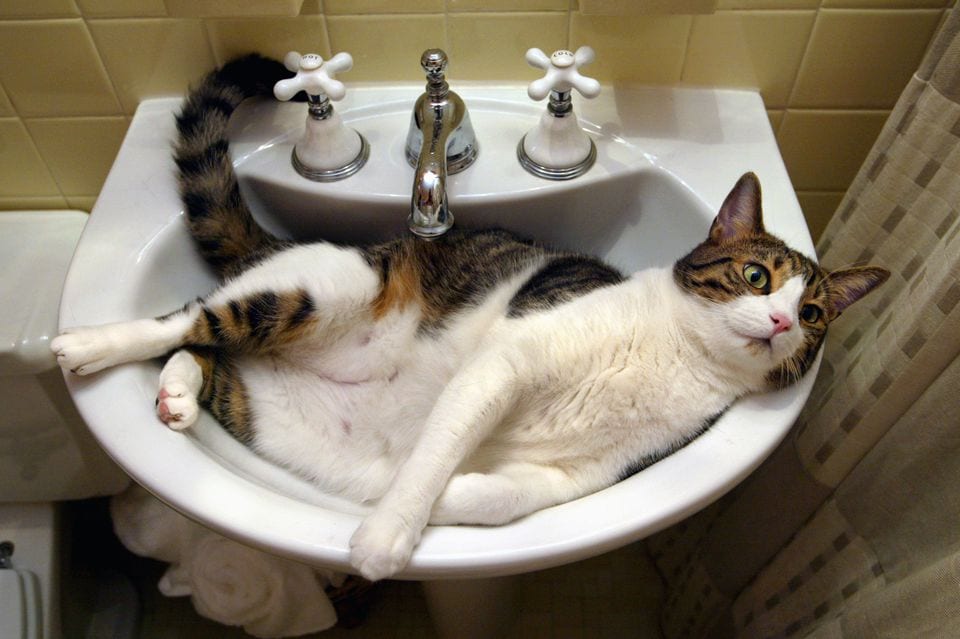
Some researchers say that cats follow owners where they go when they feel vulnerable. Some say cats do this because they are curious by nature. Maybe they’re smart enough to know that your attention will be on them if they’re also in the bathroom with you.
Thanks for the dead mouse…I guess?
Nothing like finding a dead mouse near your feet to put you off for the day. It’s a good thing that the cat is a pest reducer. But seeing that as the first thing in the morning can make you question your cat’s conduct.
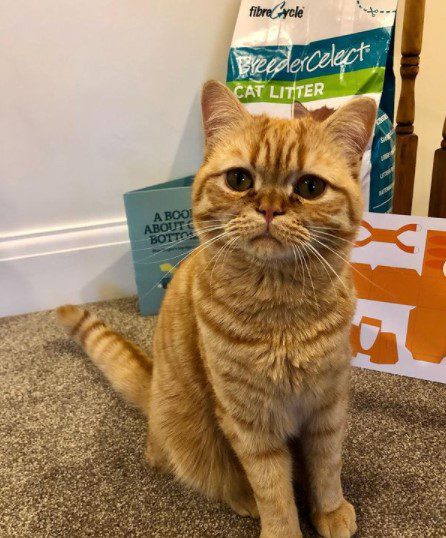
You are most likely adopted as an honorary cat if this is done to you. They learn this from their mothers. It’s also possible that your cat is thanking you for taking care of it or seeking attention for itself.
Head against the wall
You how you press your head against the wall when you feel extremely frustrated? Turns out that cats also have a version of the same behavior where they just randomly press their heads against the walls. Maybe they saw you doing it and picked up from that.
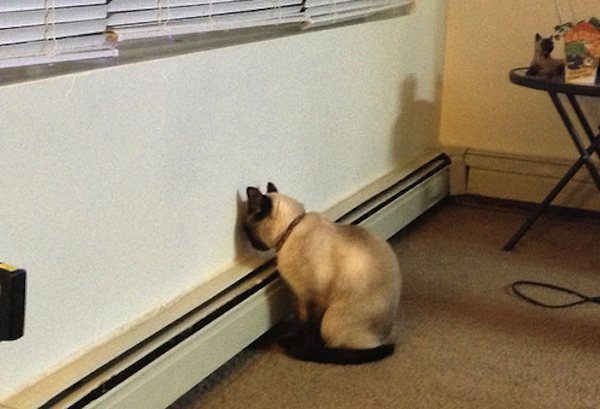
If this habit is accompanied by unusual sounds the cat doesn’t usually make, take the cat to a vet as soon as possible as it’s not normal. It could be a symptom of nerve damage caused by trauma, poisoning, growth, or another reason.
Dispose their waste by burying it
Another reason cats seem to be more hygienic than their dog friends is, whenever they go toilet, they make sure to bury their waste in the litter box. Or if it’s a wild cat, it makes sure to hide it with dirt.
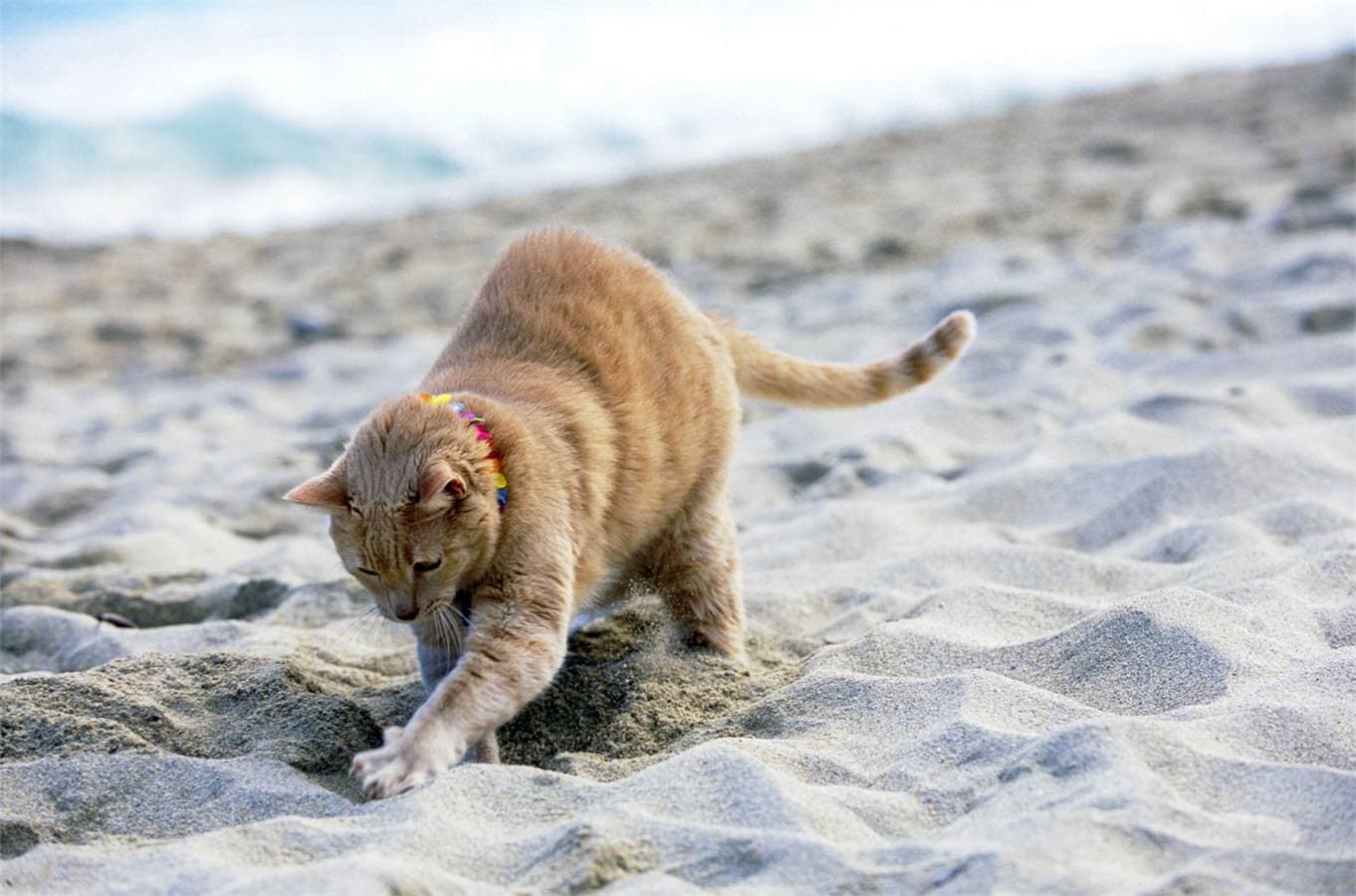
Wild cats do this to mask their scent from predators and to blend in with their group. If they don’t hide their poo, that’s a problem. If they don’t it could be because they have a sickness, anxiety, not liking the litter box given to them, etc.
What’s with cats and our feet?
If you’re a tall person, there’s nothing like having good leg space when you’re resting. Added bonus would be to keep your legs up. There you are minding your own business when out of nowhere your cat starts to pounce on your feet.
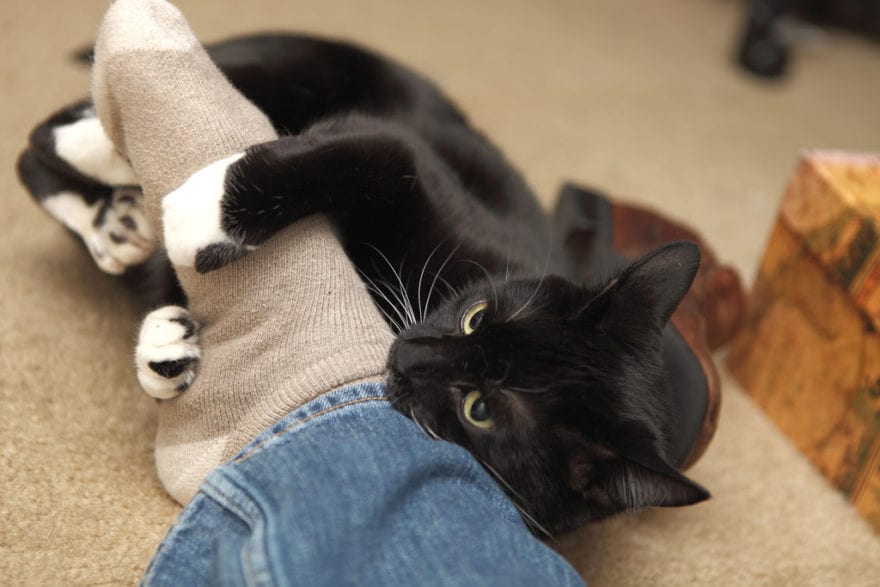
They’re just practicing their jumps and attacks and this isn’t aggression. Cats look for a game when they get bored because most of them are very playful. Just interest them in a squeaky toy if you want to save your feet.
Chilling
Cats have really perfected that royal relaxing pose. They chill like they literally own the place and you are the pet. When done correctly they look beautiful with all their fluff on display and that’s because they feel comfortable with you around.
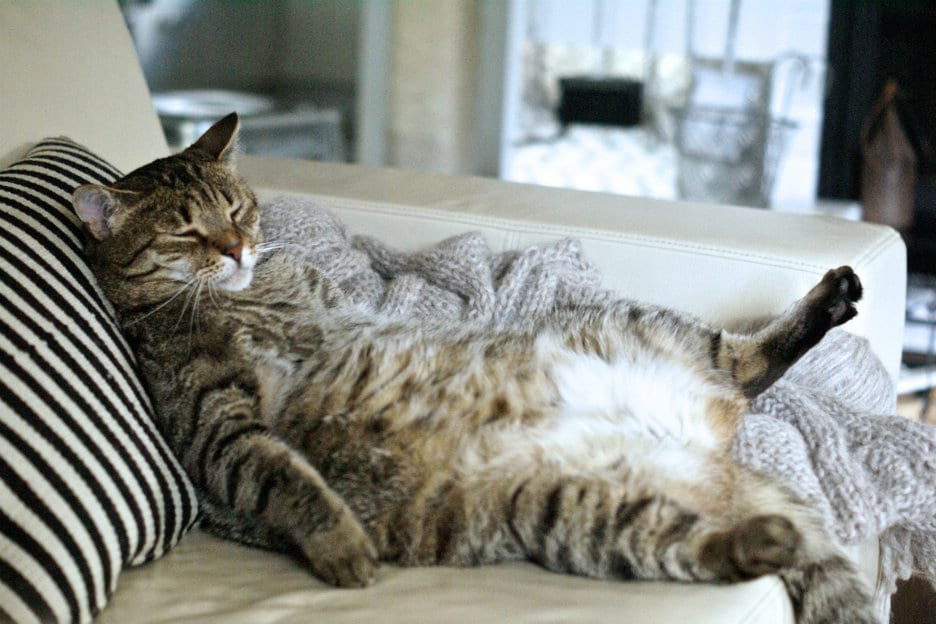
Trust is in the air if your cat rests like this. When that trust is high, they become vulnerable and expose their bellies to you. If your cat does this frequently, it means that it’s having the time of its life with you.
Getting buzzed on catnip
Catnip is a leafy plant related to mint that doesn’t appear to be anything special. Some cats go absolutely bonkers when they are near the plant. Catnip doesn’t only affect small cats; it is shown to buzz lions and tigers as well.
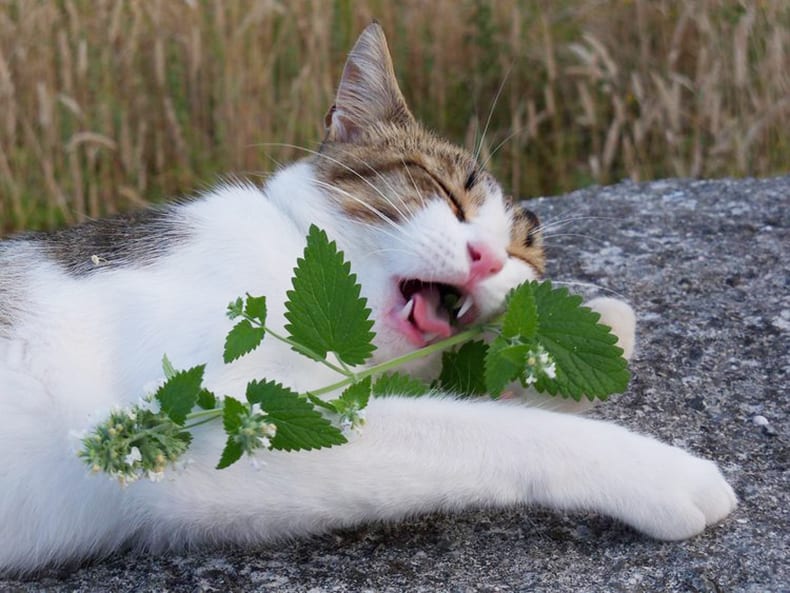
Nepetalactone, the chemical in catnip, stimulates the sensors in cat noses. This sensation gives nearly 70% of cats a trip and extreme joy. During the ten minutes that the high lasts, they will be very active, drool, and make funky sounds.
“Happy kitty, sleepy kitty, purr, purr, purr”
Hearing your pet cat purr like an industrial-grade machine working in perfect order is really something else. It’s quite satisfying, to be honest. It doubles when they just arch their tiny bodies and purr nonstop. Small mercies are the best.
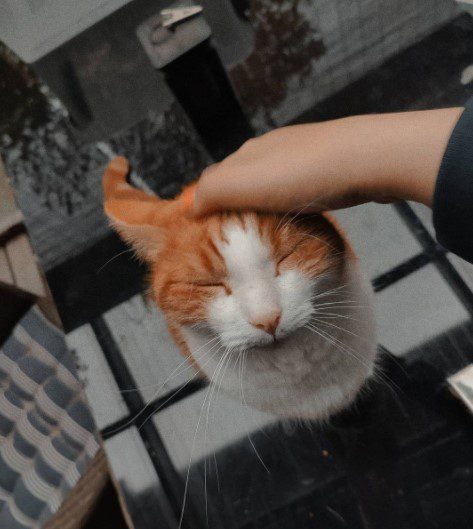
Apart from being happy and satisfied, purring has a lot of meaning. Cats also purr to communicate and to calm themselves down when stressed or anxious. That steady purring and that vibration can really calm them and their owners down.
Four feet always touching the floor
Cats are well-known for landing on all fours when they jump or fall. They possess additional vertebrae in their spine, resulting in a suppleness that allows them to contort their bodies when landing. This is why they always land on their feet.
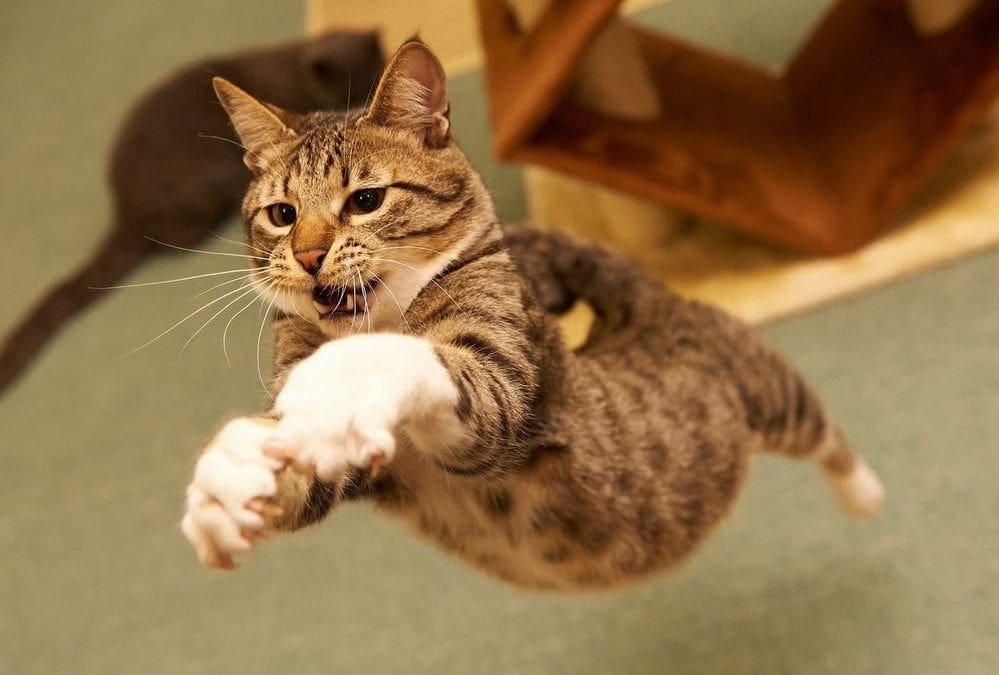
Cats are born with this ability and they perfect it by when they are about six to seven weeks old. They have light bodies and bones, matted fur, and a sense of balance that can go toe to toe with any gymnast.
Ear flutter
Cats use their ears to communicate. Sometimes their ears have markings to aid this. When cats start twitching their ears to and fro, it usually indicates that they are nervous or disturbed, and you should be cautious around them.
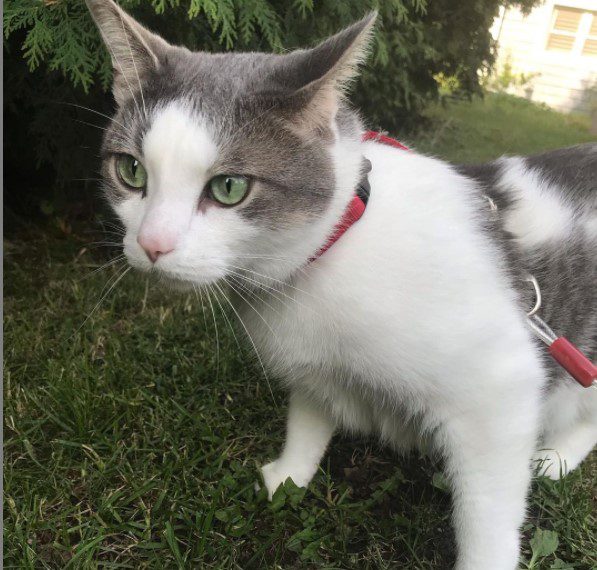
If their ears point straight forward, that cat is a happy and content cat. A sign that it’s irritated or scared is when the ears are backward or flat against the head. This means it’s time to take action. They could be warning you about danger afoot, and not just annoyed with you.
Grazing cats
Our moms used to say that cats have knowledge about what medicines they need when they are sick. But what medicinal property is in the grass? They eat grass with such a look of sourness on their face, we feel sorry for them.
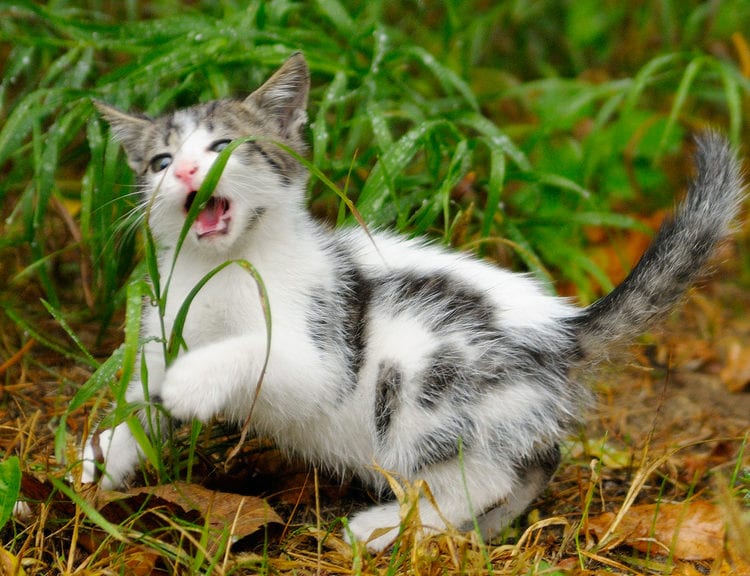
Cats use grass as a way of self-purging if they have digestive problems. Plus, most of the grass species have folic acid which the cats need in their diet. So, if your cat is chewing on grass, just make sure it’s fresh.
If the tail swishes, keep away
Dogs wag their tails to show that they are happy. That makes us happy too when we see it. Cats don’t wag their tails to express their joy. So if you see their tails going backward and forward, be alert – kitty’s not in a good mood.
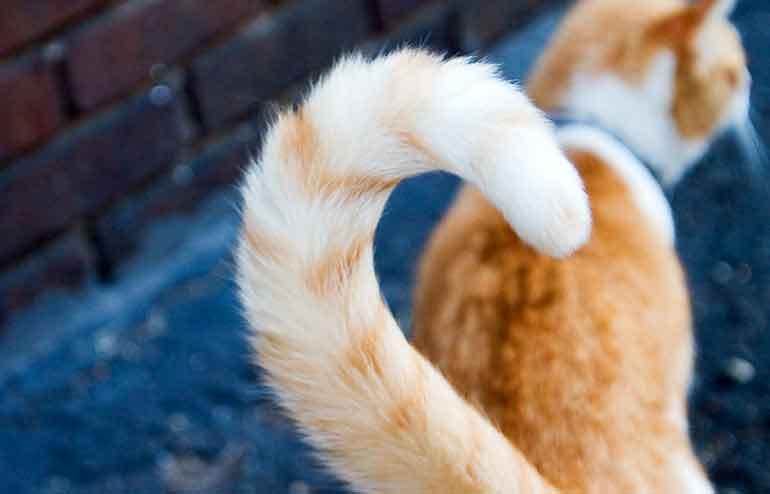
So, the best thing to do here is to let it be. It will calm down in its own time. But, if you happen to see the tail twitching and jumping, that means it’s pretty excited about something and is very attentive.
Clamping down on you
Cats are born predators. Nature has gifted them with a sharp set of retractable claws and sharp teeth which look like needles. No wonder it smarts when they bite you. Actually, there are a number of reasons for this behavior.
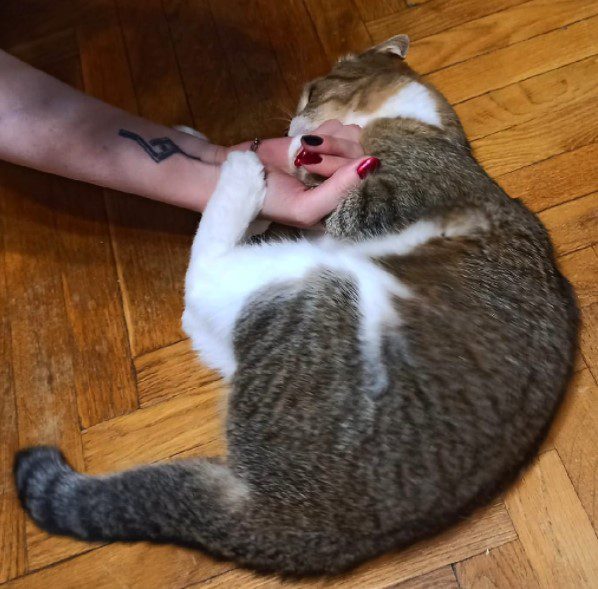
Cats bite because they might be trying to tell you that they’re angry or stressed, they’re afraid and therefore is defensive, or it’s feeling playful. Wild cats use biting as a method of expression so, in a way, it’s quite natural.
Pushing stuff onto the ground
There you are, calm as a cucumber, sitting on the table. You’re halfway through your work when you hear a loud clattering sound. The culprit is your tabby, who just thought to push your water bottle off the table. Mission accomplished!
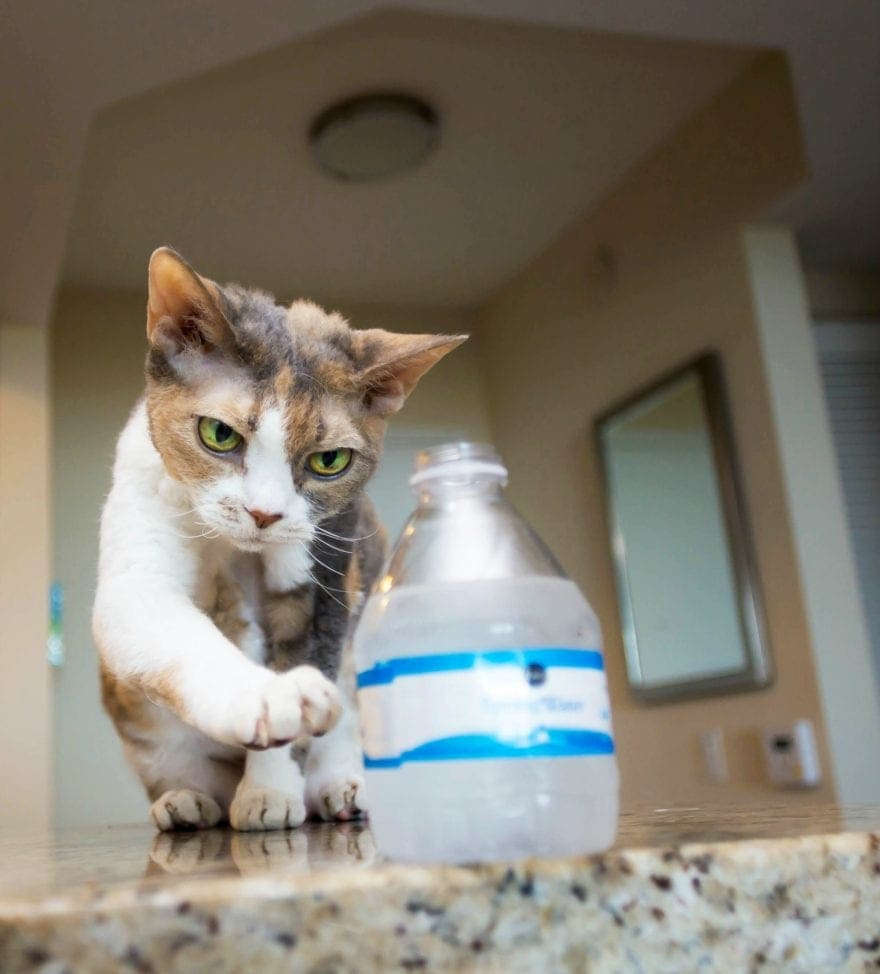
Scientists actually say that they do this because of their hunting instinct. It is in their nature to play with their prey to work on their hunting skills. Plus they get bored really easily. What better way to get someone’s attention than to make some noise.
Nail biting
People bite their nails out of habit. For those of us with this habit, we do it because we’re stressed or anxious about something. Expecting results of a test is always a real nail-biter. But why would cats do it?
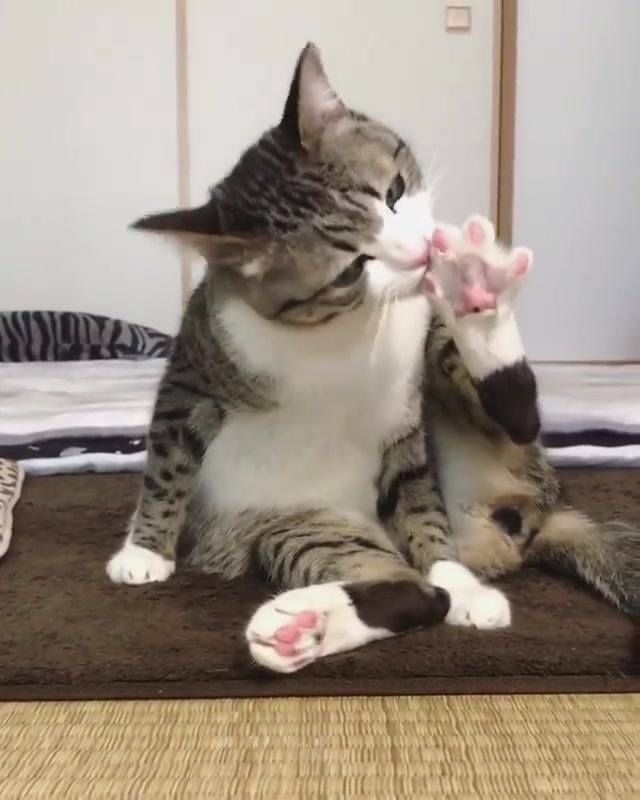
Even among cats, nail-biting is a sign that they’re nervous or just plain bored. Could also be a grooming tactic. If your cat excessively nibbles at its nails, maybe show it to a vet because it could be from an infection or a parasite.
Am I hearing a tire puncture or a snake?
Usually, people seem to understand that if a cat hisses at them, they should back away. Yes, cats hiss whenever they’re angered, but they will also hiss whenever they’re fearful or anxious. Let’s dig a little bit deeper into this behavior.
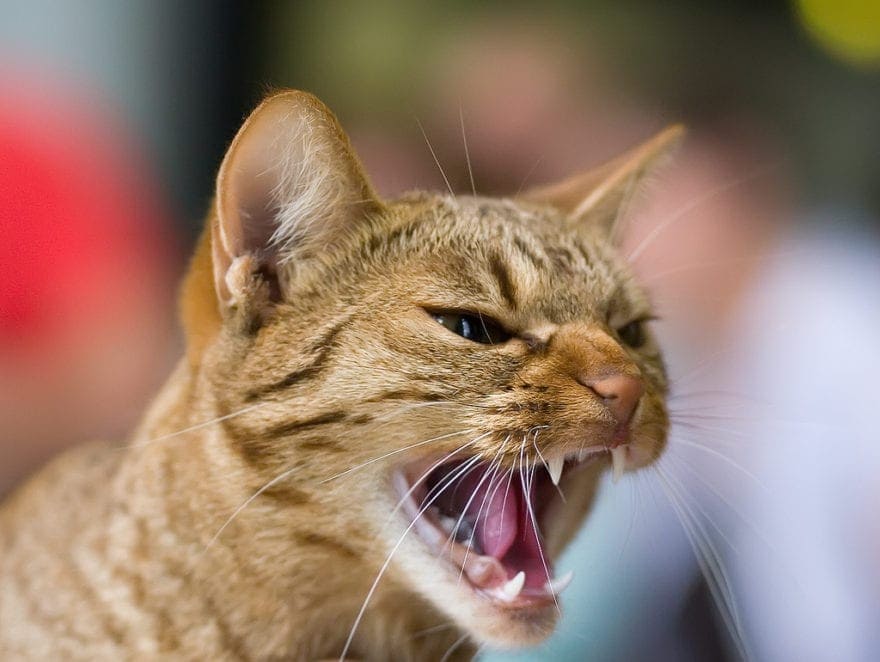
If a cat perceives you or some other human or animal as a threat, it will hiss. If your cat begins to hiss, what should you do? Keep your distance and let it cool down. It’ll be okay in a while.
Scritch – Scratch
We have all read scary examples of people returning home to discover their plush furniture ripped to shreds by a clawing cat. However, if your cat is trashing your belongings, purchase a scratching toy or a scratching post for your feline baby instead.
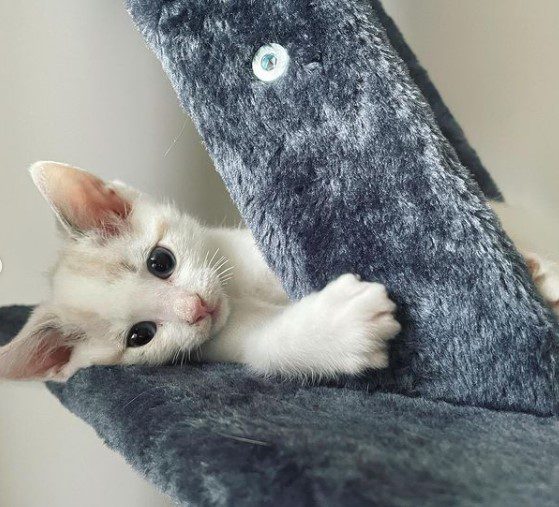
So why do your beloved pets have these destructive habits? There are three reasons as to why. Firstly, to remove dead cells from their claws. Secondly, to mark their area with their scent. Thirdly, to stretch their bodies because as we discussed, it does feel good.
When they move from the litter box to the living room
Like that one behavior where we discussed cats leaving around dead animals as gifts, nothing gets a cat owner’s mood down than seeing cats doing their business outside the litter box. You do not want to start your day by stepping on cat droppings.
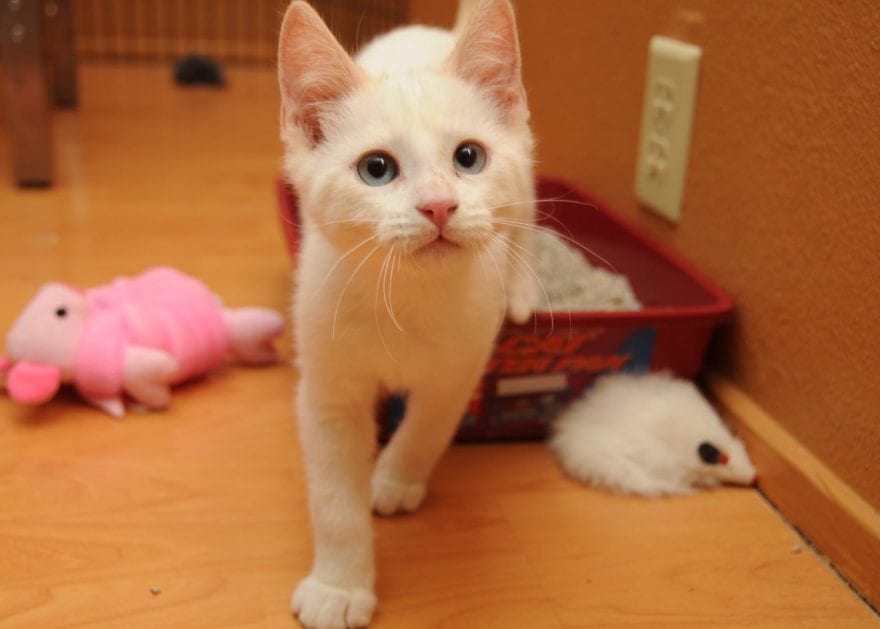
This unhealthy behavior can be a sign of a problem. The cat might not like its litterbox or the litter you have used there. Maybe it wants the box in another location. If they continue this even after changing the litter box, seek a vet.
Ninja mode
Cats are masters of sneaking around. That’s what gave rise to the term “cat feet” because they move like they are made of air. They love to sneak around the house, gliding from shadow to shadow and keeping to the furniture for cover.
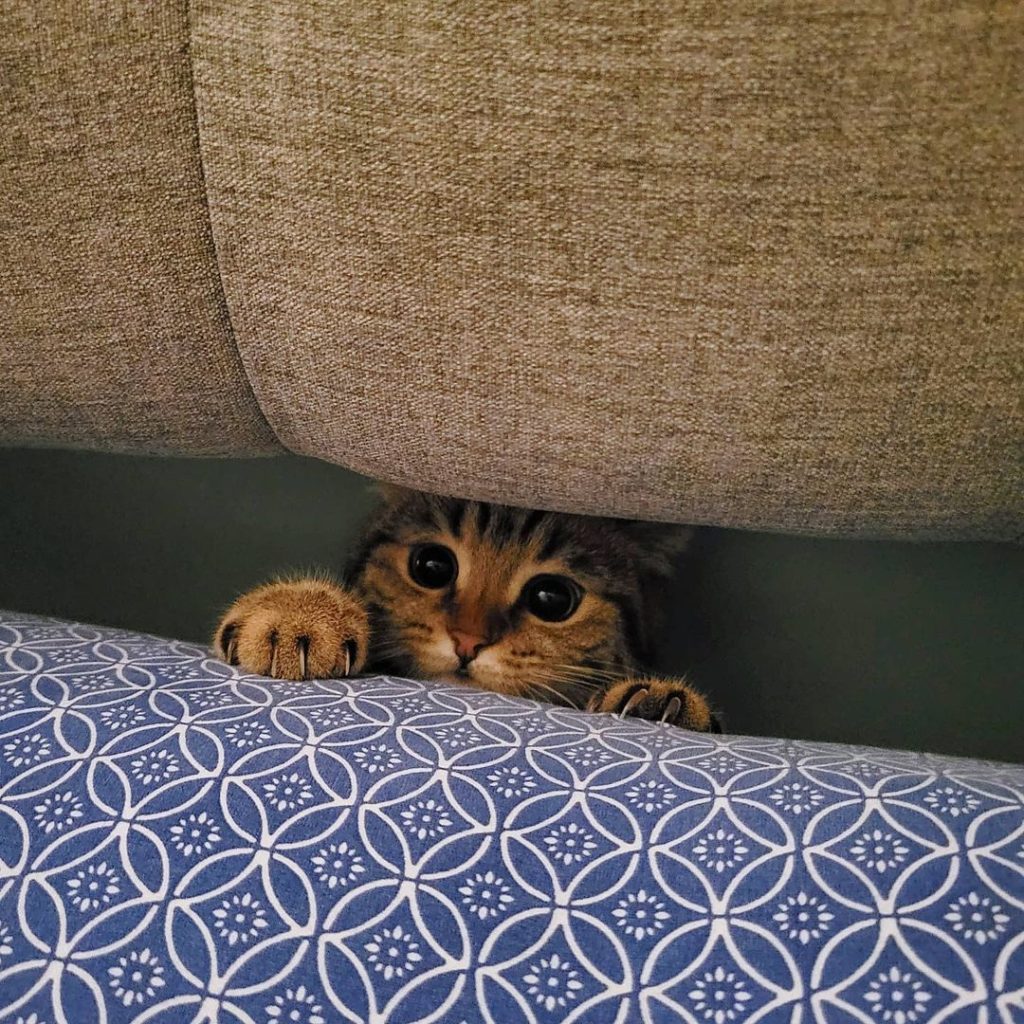
Your everyday house cat is as wild as you are. So, the reason they sneak around is that it’s in their genes. Being naturally stealthy and sneaky animals, they will use this to their advantage by getting the attention they love like catnip.
Snoozing on your chest
When someone you care about places their head on your chest, it can be one of the best feelings in the world. There has to be a lot of trust between the two people for this to happen. The same thing happens with cats.
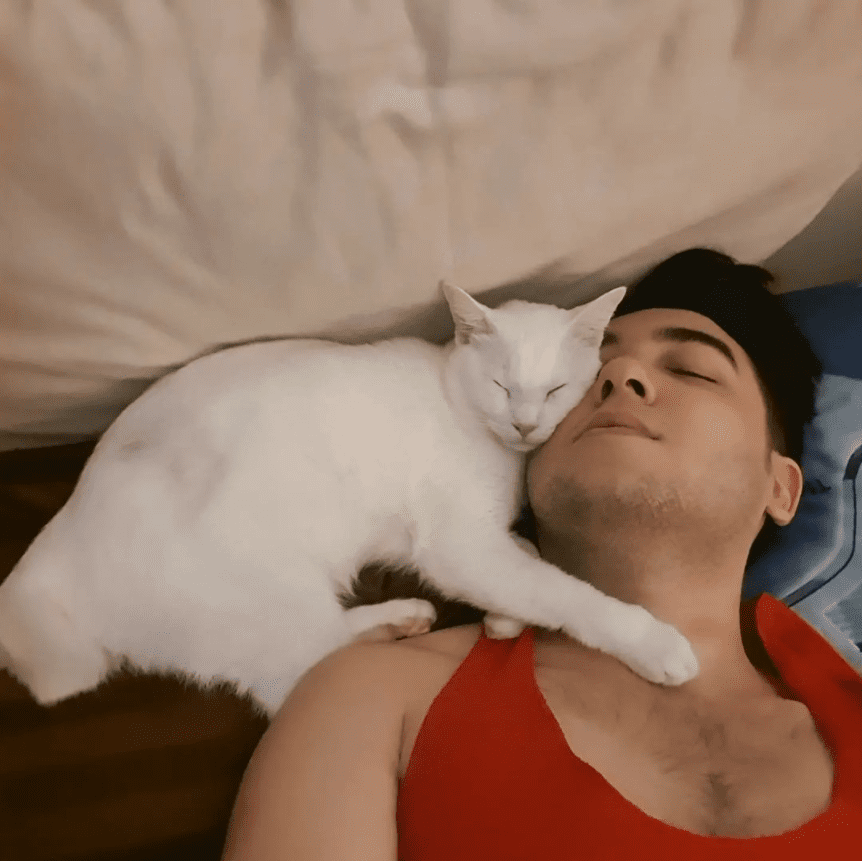
Human chests give off a lovely warmth that cats absolutely love. They love the smell of you and the rhythm of your breathing which just lulls them into a peaceful sleep. Cats feel safe in that warmth that’s why they love it.
Head bops and rubs
As we discussed previously, cats have the habit of shoving their face onto yours. If they decide to very gently head butt, it’s not a sign of aggression. As scientists say, it could be the cat’s way of greeting you.
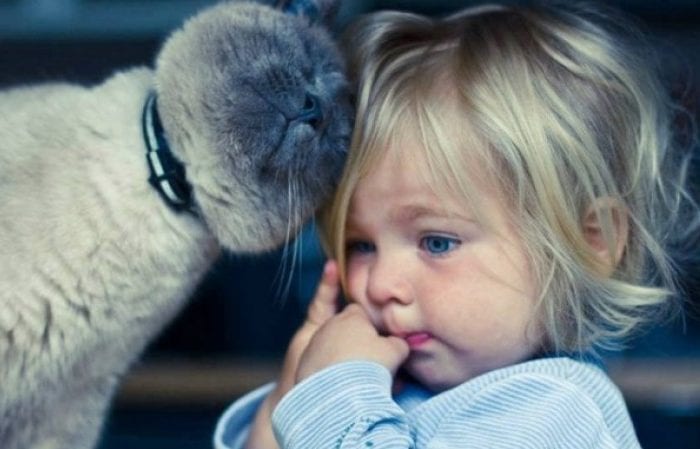
They engage in this behavior to show that they are very comfortable with the person/animal/thing in question. When they rub, they transfer their pheromones onto the other object or person, marking it as safe. The name for this adorable behavior is called “bunting.”
Cautious cats
The popular belief about cats hating water has no grounds at all. Some cats absolutely love water and spend most of their life near the water. The wild fishing cats found in Asia are a very good example to debunk this belief.
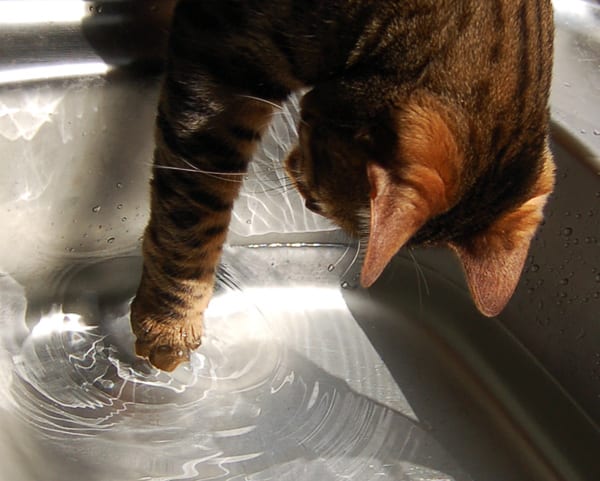
Mostly when cats paw water, they’re just looking to have some fun and play. But certain cats prefer to drink water from fresh sources. So pawing might be a way of actually aerating the water to simulate its freshness. Fancy felines.
Doing that cute arch when you scratch their back
Even with us humans, scratching can be a really pleasurable activity. It sounds especially true when you get someone else to scratch your back and when it just hits that sweet spot, it feels so good. Cats feel just as loved and pampered when we scratch their backs.
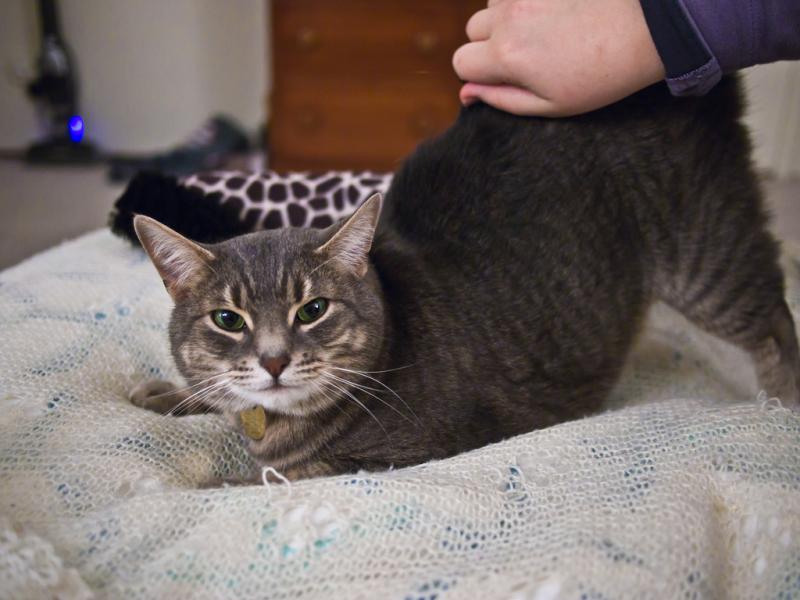
When a cat raises its back end, it usually implies you’ve found the sweet spot on its back and it’s liking your rub. Whenever a cat does this, it’s big praise, and it signifies you have earned a place in the cat’s good graces.
Hear me MEOW!!!
Cats are – most of the time – masters when it comes to getting stuff done the way they want. May it be by rubbing, purring, doing the whole puss in boots schtick, or if everything else fails, meowing like the house is on fire.
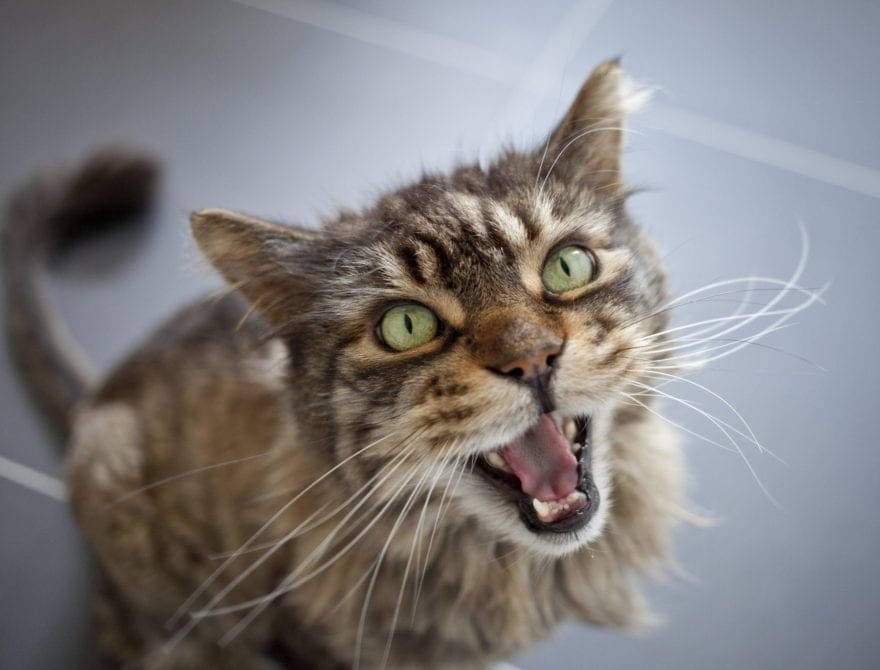
It might meow like this when it’s hungry, stuck somewhere, or wants to be let out. Sometimes, when they feel lonely or when they don’t feel healthy, they would resort to this so it’s better to check with a vet if it persists.
Feline Yoga
Stretching is actually a really good habit to develop and keep up. Not only to be done before and after exercises, when done in general, but it also promotes good mobility and joint health. No wonder cats stretch so much of the time.
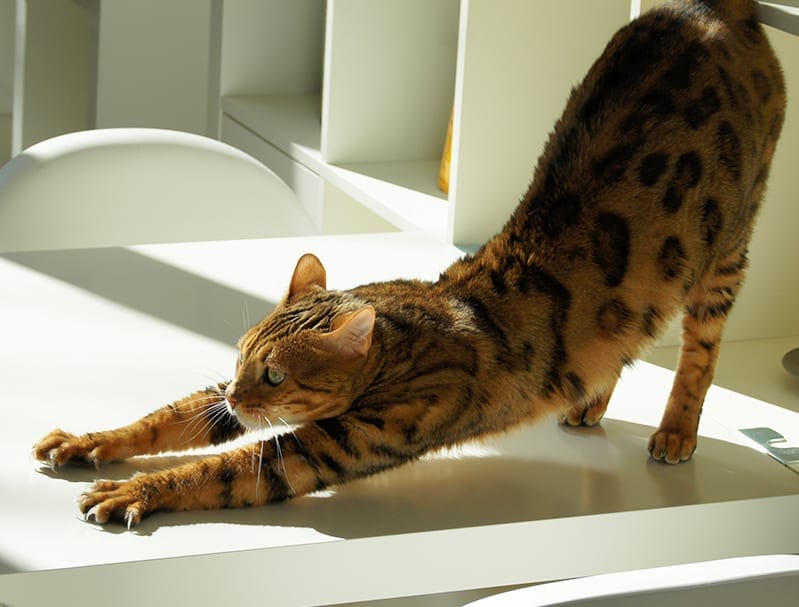
They do it to get their circulation going again after periods of rest, raise their blood pressure, force away impurities and other harmful things in muscles, and simply because that feels fantastic. Cats tend to sleep a lot, so it’s only natural that they’d need to stretch often as well.
Curling into a ball when sleeping
If it’s cold outside, a cat can remain warm by snuggling up into a small ball to nap. It is also the best sleeping posture for a cat since it shields the animal’s stomach and innards, so they stay safe while they’re vulnerable.
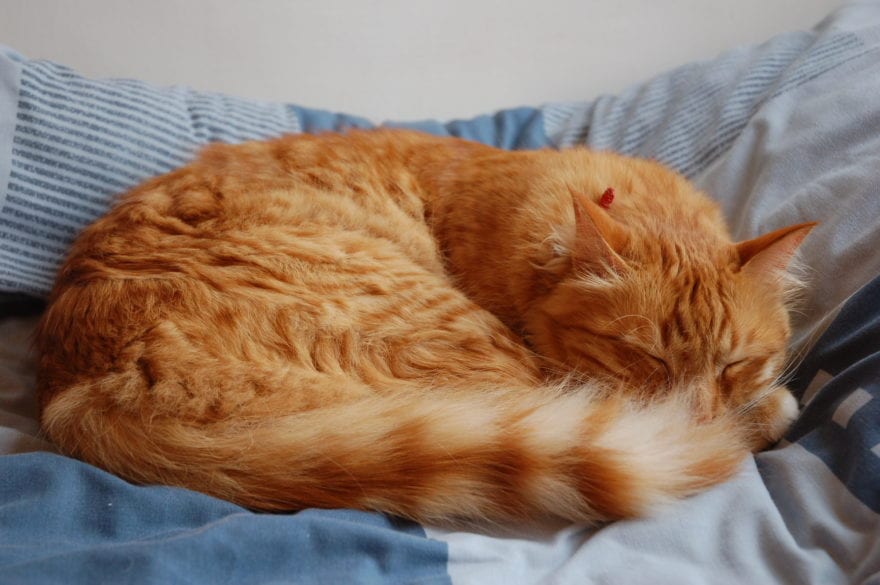
Because this has become the only way a cat could stay warm and comfortable in the wild, many cats already have the instinct to curl up through the night, even when you provide them with a soft cushion. Old habits do die hard.
Puss in Boots
Not the most common thing to see but seeing a cat standing on its hind legs looks a bit unnerving. We are used to seeing dogs on their hind legs. Even though it looks quite out of place, this does have an explanation.
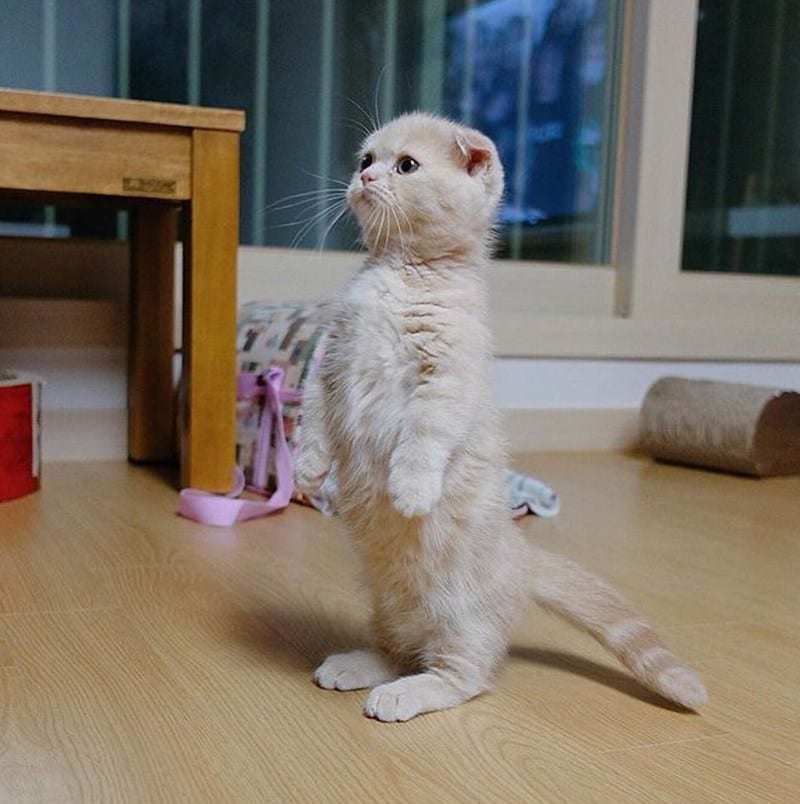
In the wild, if a cat had to face a threat and the chances of escape are minimal, it might try to stand on it’s hind legs to appear bigger. Now you know what this means, so unless it’s to reach for food, keep a safe distance.
Sotto voce “meow”
Cats aren’t just making noise for the sake of it; they’re attempting to convey a message to you! So actually listen; they may be attempting to communicate something significant to you. Who can turn away from those soft little “mews”?
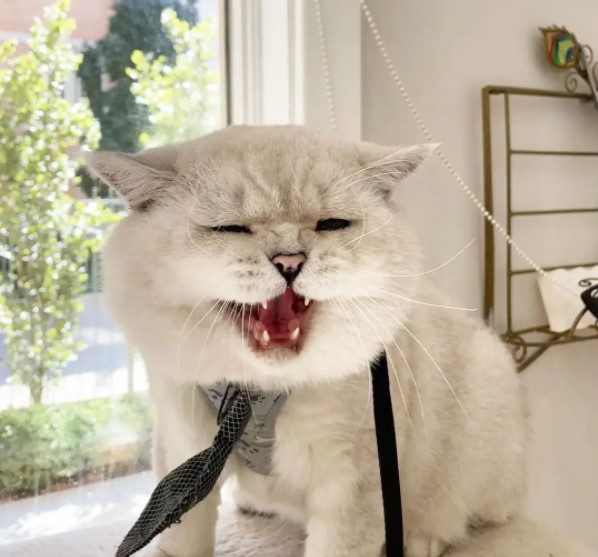
A sweet tiny meow usually conveys “hello” or a request for affection. If a cat approaches you meowing, you should touch it and rub its back and head, and you will be rewarded with the love of a very happy kitten.
Drinking straight out of the tap
Felines have quite a weak thirst reflex, so if there isn’t fresh water available, they may become dehydrated unknowingly. Certain cats, on the other hand, are so fussy that they’ll ignore their water bowl in exchange for some drops from your tap.

This is yet another trait they inherited from their ancestors, as it is widely accepted that flowing water is preferable to still water in the environment. After all, who wouldn’t want to drink clean water? There’s nothing like the taste of fresh water has when you’re thirsty.
Freedom!
Have you ever had a cat go to the litter box and then run around your household like a mad kitty with wild eyes? If this sounds eerily familiar, then accept our congratulations: you’ve witnessed what most researchers refer to as “the zoomies.”
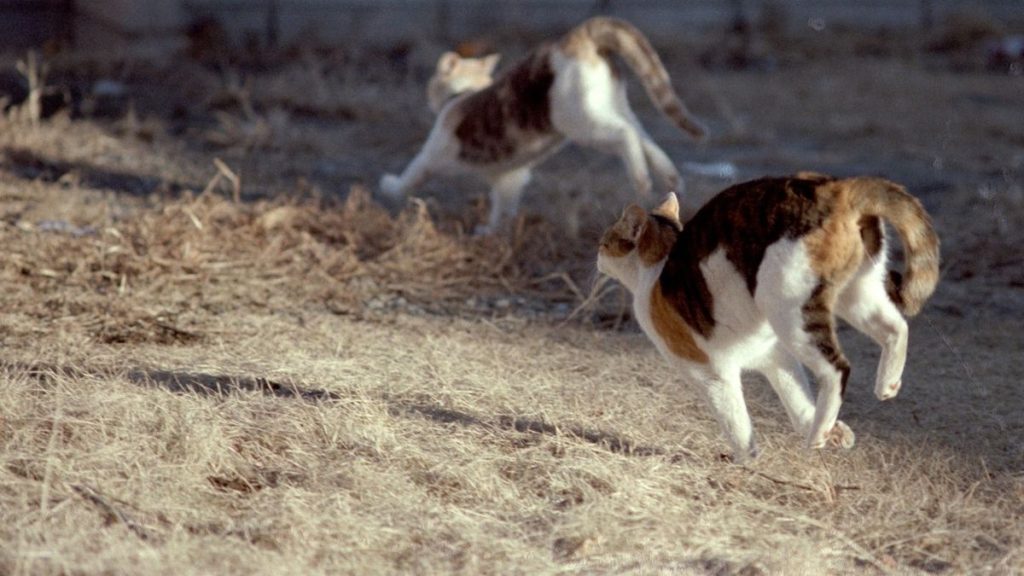
While there is a certain cartoonish side to seeing cats zoom about the house like they’re fleeing from dogs, there is another reason for this. Researchers state that cats do this to put as much as distance with the droppings so they can be away from predators.
Is it me you looking for…?
If you have had the chance of seeing a wildlife segment on lemurs, you might have seen how they walk on all fours with their tails upright, like flagstaffs. Well, cats happen to have the same behavior. What’s up with it?
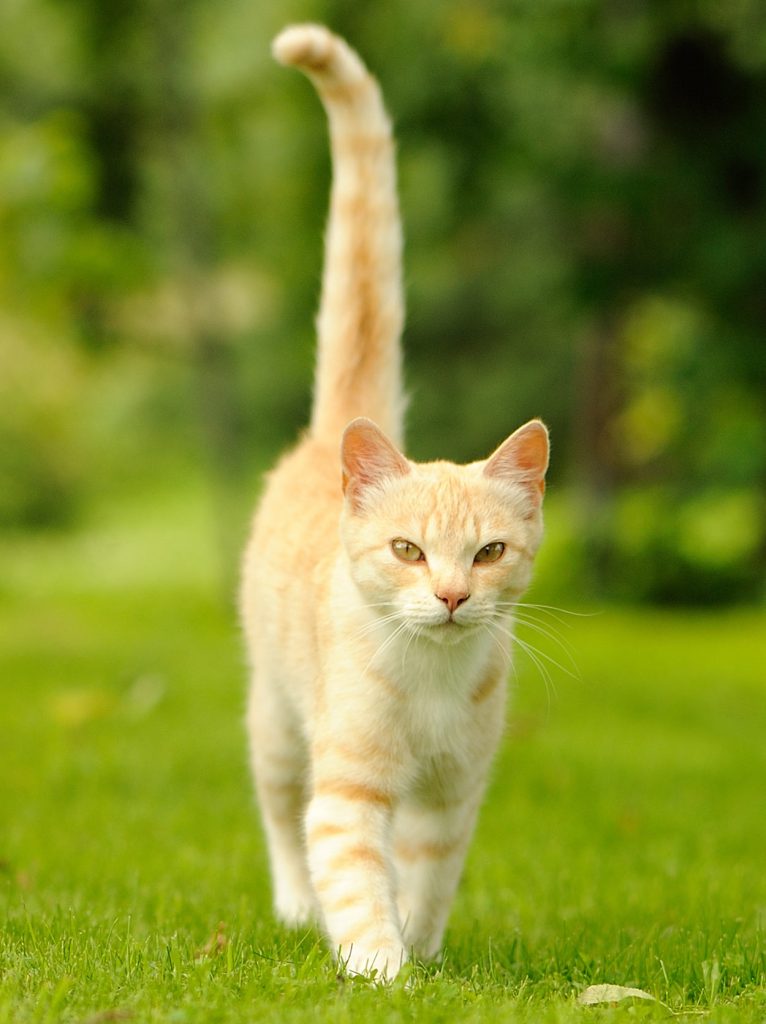
If a cat has its tail sticking straight up, that means that it has been looking forward to seeing you again and genuinely appreciates your presence there. So the most logical thing to do in this situation is to cuddle it.
Wrapping their bushy tail around you
When a cat is attempting to communicate with a human being, they often rely on a variety of methods, including a variety of meows and body language. Plus, throwing in carefully planned physical contact enables them to convey the message more clearly.
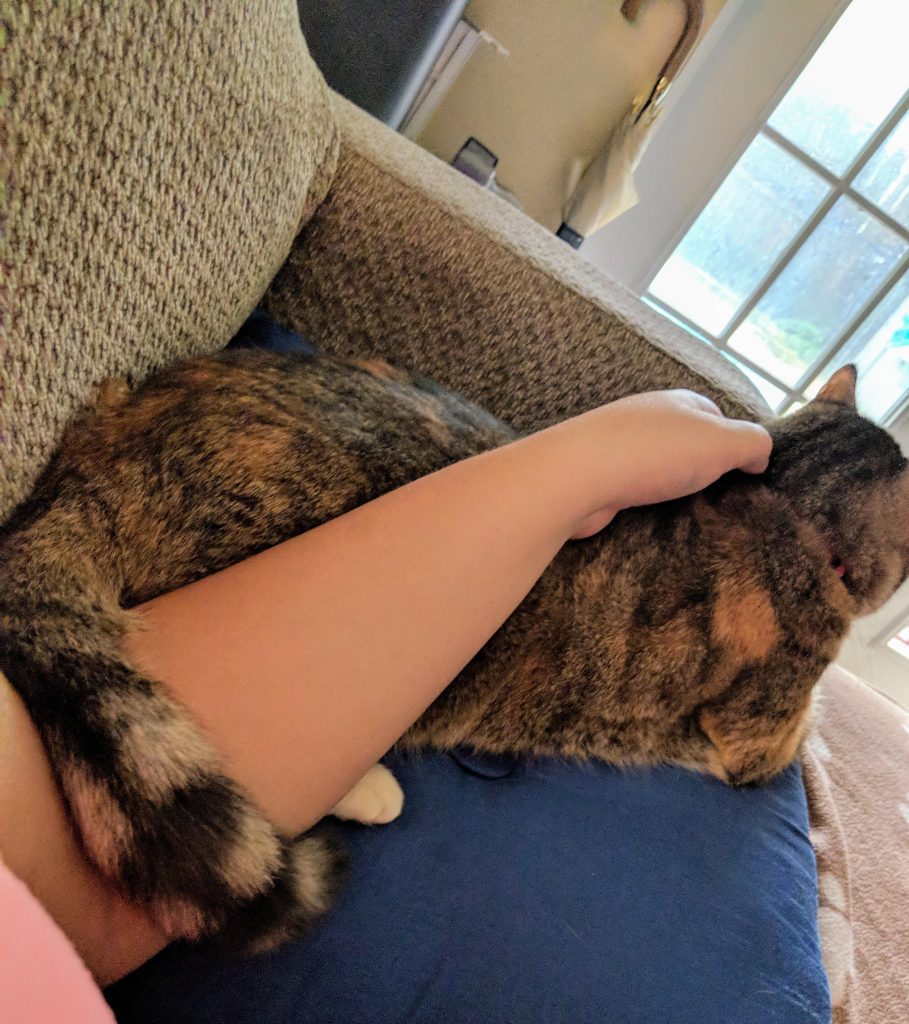
There is no sure-fire way for a cat to say how important you are to them rather than wrapping itself around you. By wrapping their tail around you, and by rubbing, it makes them easier to coat us with their scent. This is a big deal, as you can see from this list.
Half mast tail
The drooping tail is a tell-tale sign saying that you should be cautious around your cat. A cat’s low tail indicates that they are unsure of what is going on around them and are feeling defensive. They are getting ready for whatever may come.
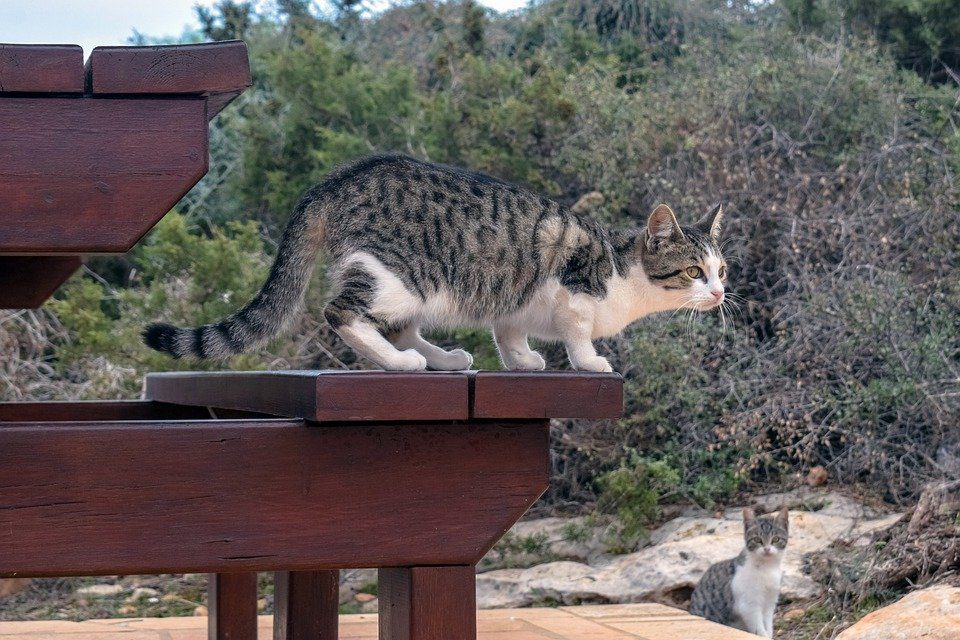
But it is not a universal fact that a low tail always signals aggression or uncertainty in cats. Breeds like Persians lower their tails when they play. So just as with everything else, your cat could differ from the “norm.”
